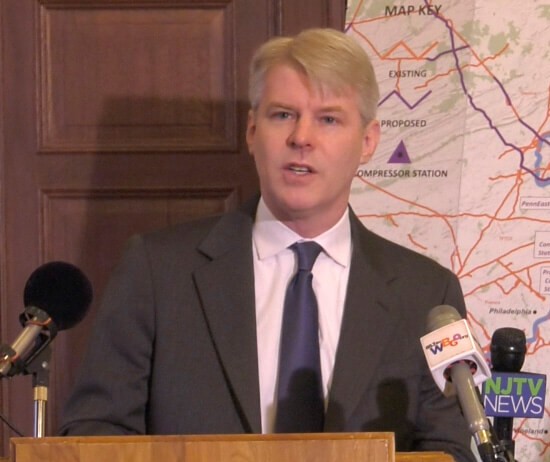
Tom Gilbert, Campaign Director, ReThink Energy NJ
DECEMBER 19, 2017 – The election of Phil Murphy as the next Governor of New Jersey could mark the beginning of a dramatic change in direction on the critical issues of climate change and clean energy. New Jersey is poised to become a leader in addressing climate change and making the urgently-needed transition to clean, renewable energy.
Governor-elect Murphy has pledged to adopt a State Energy Master Plan that will help the state achieve 100% clean energy by 2050. Some other highlights of his clean energy plan include:
State leadership on these issues is absolutely essential given the Trump Administration’s backward-looking climate and energy policies, including making the U.S. the only nation in the world that is not embracing the Paris Climate Accord, and doubling down on polluting fossil fuels such as oil and natural gas.
The environmental, economic and public safety threats associated with our changing climate have become painfully obvious as we’ve watched in horror one devastating hurricane after another, flooding from rising seas, and tragic wildfires in California.
A rapid adoption of clean, renewable energy is a key element of reducing the harmful emissions that are wreaking such havoc. This would also have the added benefit of creating thousands of good jobs in emerging industries such as offshore wind, solar energy, and energy efficiency.
As the Murphy Administration sets the state on the path to this prosperous clean energy future, it must also take a hard look at the numerous gas and oil pipelines proposed for the Garden State, and consider whether the projects are contrary to its vision and commitments to move the state to 100% clean energy.
The proposed PennEast pipeline for example, would create the same greenhouse gas emissions as 14 coal-fired electric plants, according to Oil Change International . Building a pipeline designed to deliver 1 billion cubic feet of natural gas daily, a polluting fossil fuel, is completely at odds with moving the state to 100% clean energy by 2050. To make matters worse, the NJ Division of Rate Counsel has deemed the project as “unnecessary” and “unfair to ratepayers” who would foot the bill.
Fortunately, New Jersey has significant power when it comes to proposed pipelines.
As background, interstate gas pipelines like PennEast are first reviewed by the D.C.-based Federal Energy Regulatory Commission (FERC). Historically, FERC has indiscriminately approved pipelines with little-to-no regard to their need and negative impact on critical environmental resources like streams. However, states like New Jersey have the final word on whether proposed pipelines comply with strict water quality standards under the Clean Water Act. This means the New Jersey Department of Environmental Protection (NJDEP) is a defense against the expansion of unneeded fossil fuel pipelines that unnecessarily threaten our state’s waterways.
The PennEast pipeline alone threatens 38 of the cleanest streams in the state that provide critical habitat to threatened and protected species. It would cut through and damage more than 4,300 acres of open space and farmland that New Jersey taxpayers paid to preserve. Independent scientists also warn that PennEast, if constructed, could elevate levels of deadly arsenic in drinking water supplies.
New York State recently exercised this state-level pipeline review authority when its Department of Environmental Conservation (NYSDEC) blocked the Constitution Pipeline, which already had FERC approval, by denying water quality permits because the project did not provide enough information to show that it would not have caused extensive damage to streams and wetlands. Federal courts have since upheld NYSDEC’s decision.
New Jersey must safeguard its waters at least as carefully as New York. New Jersey has the power to set its own course on energy, regardless of FERC’s actions and the shortsighted policies coming out of Washington. We can take steps to address climate change, develop renewable sources of energy, create jobs in industries of the future, and prevent unneeded pipelines from polluting our water and environment while saddling ratepayers with the costs.
We look forward to working with the Murphy Administration to usher in a new era of clean energy in New Jersey, one that will lead to a healthier and more prosperous future.
Tom Gilbert is campaign director of ReThink Energy NJ and New Jersey Conservation Foundation.
# # #